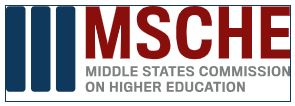Institutional Effectiveness
The Office of Academic Affairs and Workforce Development (OAAWD) oversees credit and non-credit academic programs and several supportive departments. OAAWD houses the School of Business, Technology, and Industry, the School of Health Sciences, the School of Liberal Arts, the School of Science and Mathematics, and the School of Public Service . The following departments are also under the purview of the Office of Academic Affairs and Workforce Development: Institutional Effectiveness and Strategic Planning, Institutional Research and Reporting, Center for Design and Instruction, the Learning Commons and Library. This office comprises just one cornerstone of an integrated planning and assessment framework to support student success.
HACC embraces a collaborative and integrated approach to planning, budgeting, and resource allocation through its strategic plan, divisional plans, and departmental plans. This approach enables all employees to identify how their daily work supports HACC’s purpose: Learning for all, learning for life. (Last updated: 2022)
A culture of ongoing continuous improvement exists through the use of assessment and data to inform future planning. Cross-divisional groups regularly collaborate to discuss and share progress on initiatives, examine data trends, address challenges, and monitor outcomes to improve the student experience.
Harrisburg Area Community College’s accreditation status is ‘accreditation reaffirmed’. The Commission’s most recent action on the institution’s accreditation status on June 21, 2018 was to reaffirm the institution’s accreditation status. The next evaluation visit is scheduled for 2026-2027.
MSCHE is an institutional accrediting agency recognized by the U.S. Secretary of Education and the Council for Higher Education Accreditation (CHEA).
The Middle States Commission on Higher Education:
1007 North Orange Street
4th Floor, MB# 166
Wilmington, DE 19801 267-284-5011
As an accredited institution, HACC, Central Pennsylvania’s Community College,
- Ensures that education provided meets acceptable levels of quality within higher education.
- Offers eligible students federal student loans and grants.
- Enables students’ earned academic credits to transfer to other accredited institutions of higher education.
- Engages in self-reflection and continuous institutional improvement.
To view HACC's current accreditation status, visit https://www.msche.org.
The Pennsylvania Department of Education recognizes HACC as an institution of higher education (initial approval, October 14, 1964). The College awards certificates, diplomas, and associate degrees. Some of HACC’s programs may also possess discipline specific program accreditation, which identifies more stringent standards for educational outcomes.
In addition to institutional accreditation, many programs at the college also uphold best practices within an area of study through national accreditation or state approval.
Academic Program and Student Learning Assessment
Administrative and Non-Academic Assessment
HACC launched its 2022-2025 institutional strategic plan (ISP), Pathways to Success, in July 2022. As part of an active planning process, divisional plans were developed to identify initiatives to support the ISP. In July 2023, the College updated its strategic initiatives as a result of assessment to add greater clarity, intentionality, and measurability.
Status reports are generated to monitor progress on the ISP and reviewed by the strategic planning committee. The Board of Trustees receive status reports to remain apprised of progress at the College.
Several cross divisional committees meet on a regular basis to share data and inform cross-divisional initiatives and prioritization. These committees utilize data and assessment findings to inform ongoing continuous improvement.

